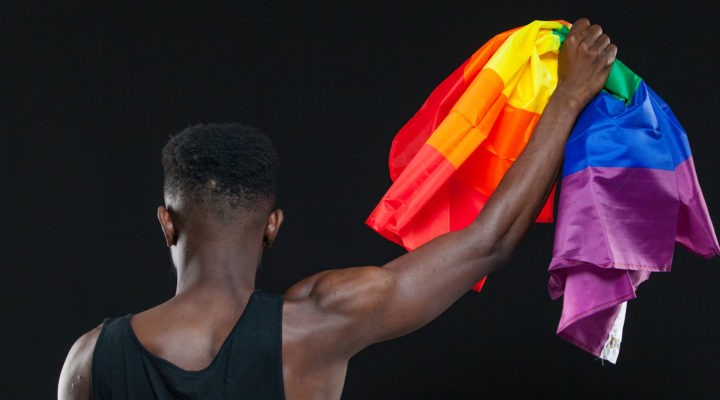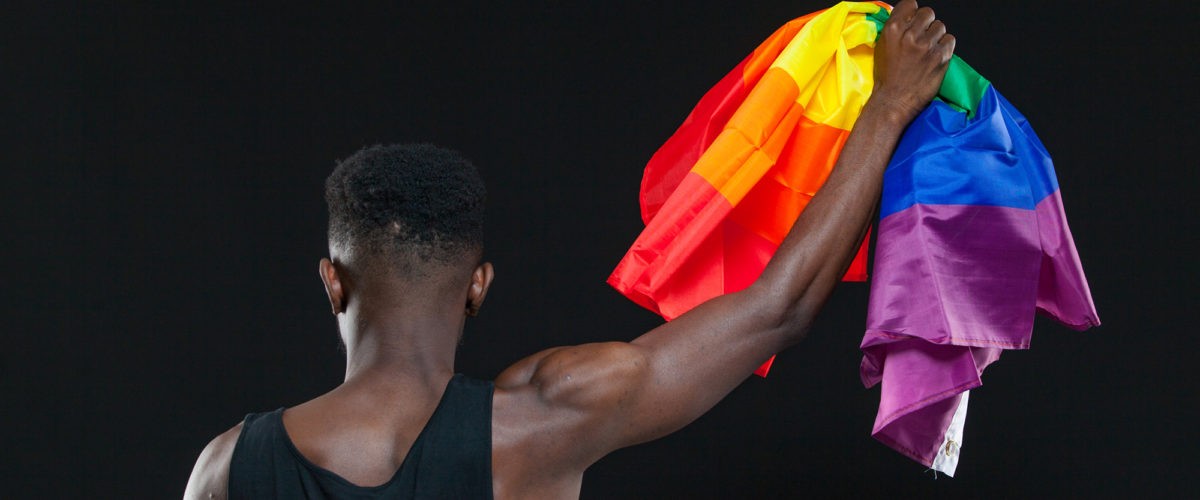Ghana is the latest country in Africa seeking to explicitly outlaw same-sex relations in an appeal to cultural values and conservative religious views.
Members of the LGBTQ community fear they may become the victims of violence as a result of the new anti-gay bill in a country where they already feel marginalized and where same-sex relations already are illegal but the law is rarely enforced.
A 2018 report by Human Rights Watch noted that “the combination of the criminalization of adult consensual same-sex conduct and the profoundly religious and socially conservative Ghanaian context has an insidious effect on (LGBTQ) individual self-expression.”
Even three years ago, those interviewed “said that they either felt they had little choice but to adopt self-censoring behavior, or worse, deny their sexual orientation or gender identity to avoid suspicion by family members and the communities in which they live,” the report said. “Numerous interviewees told Human Rights Watch that in certain instances, such suspicion has led to violence, extortion and arrests.”
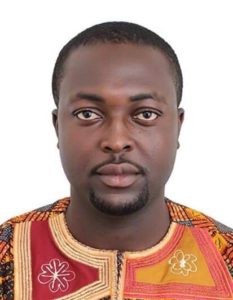
Prince Appiah
Merely reporting about LGBTQ activities in Ghana creates problems for some people, as Ghanaian journalist Prince Appiah found out. In the heat of the anti-gay bill controversy, Appiah produced a documentary titled “The Gay Next Door,” which some people interpreted as endorsing or arousing sympathy toward the LGBTQ community. “The response was not entirely positive. There was verbal abuse and even threats,” Appiah said.
In seeking to pass a new anti-gay bill, Ghanaian legislators hope to follow in the footsteps of countries like Nigeria, where engaging in same-sex relationships is punishable by 14 years in prison.
In May 2021 the BBC reported that 69 countries around the globe currently have laws that criminalize homosexuality, and nearly half of those countries are in Africa.
Ghana already appears on the list of countries where it is dangerous to live as an LGBTQ person — along with Liberia, Eritrea, Ethiopia and Kenya. Allies of the LGBTQ community fear the new law may be more draconian.
Across large parts of Africa, anti-gay sentiment remains strong, rooted in the region’s traditional belief systems where same-sex marriage and same-sex relations are perceived to be unnatural and unacceptable.
Across large parts of Africa, anti-gay sentiment remains strong, rooted in the region’s traditional belief systems where same-sex marriage and same-sex relations are perceived to be unnatural and unacceptable.
This explains, in part, the current schism within the United Methodist Church, which has a large presence in Africa. As the global United Methodist Church prepares to split, a majority of African bishops and clergy have aligned with conservative Methodists in America to oppose the more open stance taken by a majority of U.S. Methodists.
A 2015 letter from bishops of the Central Conferences of Africa of the United Methodist Church illustrates this stand against same-sex marriage.
“Over the past four decades, from 1972 until the present, we have watched with shock and dismay the rapid drift of our denomination from this holy call to a warm embrace of practices that have become sources of conflict that now threatens to rip the church apart and distract her from the mission of leading persons to faith and making disciples of Jesus Christ for the transformation of the world,” the bishops wrote. “One of such practices is the LGBT (lesbian, gay, bisexual, and transgender). We are deeply saddened that the Holy Bible, our primary authority for faith and the practice of Christian living, and our Book of Discipline are being grossly ignored by some members and leaders of our church in favor of social and cultural practices that have no scriptural basis for acceptance in Christian worship and conduct. Yet they continue to attempt to persuade members of the church to incorporate these practices as an accepted code of conduct within global United Methodism.”
In Ghana, and in Africa as a whole, it is not just United Methodist leaders who oppose same-sex relations and marriage. The Ghana Catholic Bishops Conference also opposes normalizing same-sex relations and therefore supports the bill currently pending in the Ghanaian legislature.
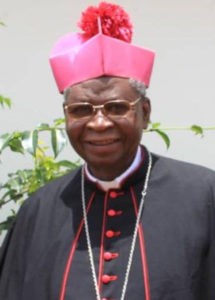
Philip Naameh
Philip Naameh, metropolitan archbishop of Tamale and president of the Ghana Catholic Bishops Conference, recently denied media reports quoting him as saying that Ghana risks becoming a Muslim majority country if LGBTQ persons are allowed to carry on with their lives unchecked.
In an Oct. 11 news release, Naameh said the statement credited to him was a fabrication by someone hoping to break the ranks of the anti-LGBTQ bill supporters.
“The position of the Catholic Church on LGBTQIA+, which I have stated in several interviews with the media … has remained the same; that such practices are against not only Christian values, but Muslim and traditional values as well.”
Across the four decades of his life as a priest, he said, he has helped to promote peaceful coexistence, religious tolerance and harmony among people of all faiths. “I have the feeling that they only sought to cause disaffection for me and break the front of the formidable coalition behind the Proper Human Sexual Rights and Family Values Bill,” Naameh said.
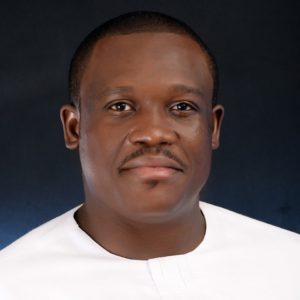
Sam George
That bill, proposed months ago by Sam George, a Ghanaian member of parliament, would criminalize same-sex relations in the country. George explained that his bill carries a “term of imprisonment not less than three years or not more than five years or both,”although details are still under consideration in consultation with the country’s president, Nana Akufo-Addo.
Asked by a CNN journalist why he was “pushing a bill to legalize hate and homophobia in Ghana,” George replied: “I do not understand what you mean by pushing a bill that would legalize hate and homophobia. It’s a bill to promote proper human sexual rights in Ghanaian family values.”
He went on to explain that “Article 39 of the Ghanaian Constitution is clear, that the state shall take steps to inculcate the right Ghanaian customary values into society” and that Ghana’s traditional leaders support the bill.
“The Constitution of Ghana states clearly that the National House of Chiefs is the custodian of Ghana’s custom,” he said. “This bill is supported by the Ghana National House of Chiefs.” That group is the highest body in Ghana that unites all traditional rulers, chiefs and kings.
While reaction to the anti-gay legislation has been mixed, “a greater section of the Ghanaian community seem to be in support of the bill,” noted Prince Appiah, the Ghanaian journalist. He cited a January event as a catalyst for the bill. That event was the opening of an LGBTQ “safe space” in Accra, Ghana’s capital city. The center had to close in February, one month later, due to threats and abuse.
Nevertheless, a group of lawyers and academics have openly voiced their opposition to the anti-gay bill. But such agitation or activism could come at a price. In May this year, the Volta Regional Police Command arrested 21 LGBTQ persons in Ho and had them charged in court for unlawful assembly. Early attempts to get them released from detention met with a brick wall as different court officials denied them bail until they finally were released.
Displeased with the situation, the Ghana Center for Democratic Development said the arrest of the LGBTQ members was illegal and a violation of their rights.
“First, it is clear that gathering to educate people at a hotel venue on LGBT+ issues is not a criminal act or crime under the Constitution or any statute,” it said. “At the time of their arrest, the arrestees were not engaged in or found to have engaged in any unlawful act or in possession of any unlawful or prohibited items.”
Anthony Akaeze is a Nigerian-born freelance journalist who currently lives in Houston. He covers Africa for BNG.
Related articles:
African bishops demand independence in deciding United Methodist Church’s future
For Zimbabwe’s Christian LGBTQ refugees, Montreal city is a sanctuary

